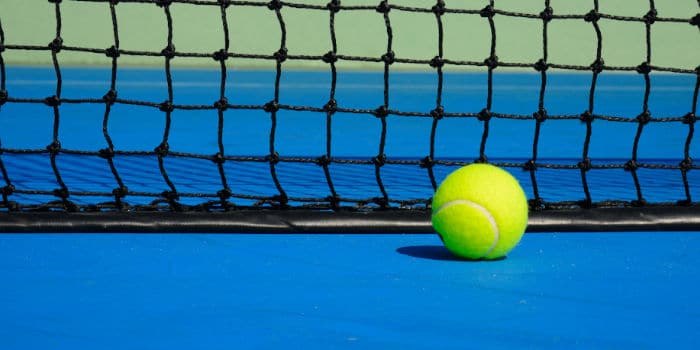- Casino
- By State
- Alabama
- Alaska
- Arizona
- Arkansas
- California
- Colorado
- Connecticut
- Delaware
- Georgia
- Florida
- Hawaii
- Idaho
- Illinois
- Indiana
- Iowa
- Kansas
- Kentucky
- Louisiana
- Maine
- Massachusetts
- Maryland
- Michigan
- Minnesota
- Mississippi
- Missouri
- Montana
- Nebraska
- Nevada
- New Hampshire
- New Jersey
- New Mexico
- New York
- North Carolina
- North Dakota
- Ohio
- Oklahoma
- Oregon
- Pennsylvania
- Rhode Island
- South Carolina
- South Dakota
- Tennessee
- Texas
- Utah
- Vermont
- Virginia
- Washington
- West Virginia
- Wisconsin
- Wyoming
- By State
- Slots
- Poker
- Sports
- Esports
Women Close the Gap on Gender Inequality in Betting, Study Shows

A HPL Digital Sport study has shown that, while not as many women participate in sports gambling, gender inequality is quickly disappearing from daily activity.
State of Sports Gambling and the Emerging Women Betting Market
A new report by HPL Digital Sport has delved into the state of the sports betting industry, deriving interesting insights into the rise of women bettors, the pervasiveness of the black market, and generational differences in bettors, which ultimately determined what they valued in their betting experience.
Collaborating with SBC Americas, HPL Digital Sport has been able to track compelling trends in sports betting and how the things we accept at face value as truths may not be exactly so. Sports betting was long considered the exclusive prerequisite of male bettors, a statement that is now being challenged by the clear upward trend in female bettors’ participation in sports gambling contests.
The HPL Digital Sport study spoke of a 28% rate of participation of women bettors in 2020, but the number has increased by 33%, according to new data cited in “2021 State of the Sports Betting Industry.”
Gender inequality is still very much present in sports gambling, but there has been a steady upward trend bringing more female bettors into the fold. While the total number of bettors is significantly tilted in favor of men, women make for about 17% of daily sports bets, compared to 18% for men, the study argues.
Women Place as Many Daily Bets as Men
The study digs a little deeper into what motivates women and men as sports bettors. Women seem to value referrals by friends and family more, at 41%, compared to men, who cite these factors as important in making bets in only 31% of the cases.
Engaging in social media content is also important for women (38%) compared to men (30%). Women are also more likely to opt for social betting options rather than the real money kind. Female bettors also value events that have greater social implications, such as the Kentucky Derby or the NCAA Tournament, and are generally more likely to pay for analytics tools, with 20% of women doing so, compared to just 15% of men.
Not only are women becoming a more important part of the gambling landscape, but they are also dictating the norms.
Female Bettors Outperform Their Male Counterparts
Women are not just more involved in sports gambling today, but they similarly tend to beat their male counterparts, at least in some instances. According to a 2020 study conducted on the 888’s sports betting platform in New Jersey, women saw a 19.79% return on investment on their bets, whereas men saw a 4.6% loss.
Interestingly, based on the data collected by 888, women in the 18-24 age group seemed to lose more than their male counterparts, with an ROI of around -34.12%. However, those aged 25-44 tended to drive a solid return of 127%-129% on their bets.
Women Should Take the Next Step
Looking into the matter of female participation in sports gambling, Sportico reached out to PlayStar US CEO Laila Mintas, who argued that almost 50% of sports fans were women and argued that women should make a step forward by placing a bet on sports events.
“In the U.S., everybody is doing copy-and-paste at the moment. All the different sports betting offerings look the same. Even starting with the display and the colors—it’s all very similar. It’s very dark. It’s all very male-focused, and the whole industry is male-driven,” Mintas said, cited by the outlet.
Younger generations also seem to be keener on placing a bet. Female bettors from Generation Z and Millennials seem to be the most interested group in sports betting with 27% and 28%, respectively.
Female participation in sports betting events can revitalize a market that needs to think strategically ahead to avoid overreliance on a single customer group. Strong participation by female gamblers means brand new revenue opportunities, but it also means understanding the customer base and what it needs.
All of this comes in a still challenging context for sports betting in the US, where 20% of all sports bettors continue to use offshore sportsbooks, and another 17% opt for a bookie.
Related Topics:
Stoyan holds over 9 years of esports and gambling writing experience under his belt and is specifically knowledgeable about developments within the online scene. He is a great asset to the Gambling News team with his niche expertise and continual focus on providing our readers with articles that have a unique spin which differentiates us from the rest.
Must Read
More Articles



Casino
June 30, 2025
DIMOCO Enters Germany iGaming Market with Neo.Bet

Casino
June 26, 2025
ANJ Acknowledges Real Progress in 2024 Activity Report













